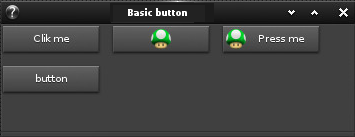Phoronix: Improved Wayland Application Redraws Coming To Enlightenment's EFL
Samsung's Open-Source Group has been working on making their Wayland support in the Enlightenment Foundation Libraries (EFL) even better...
Samsung's Open-Source Group has been working on making their Wayland support in the Enlightenment Foundation Libraries (EFL) even better...








Comment